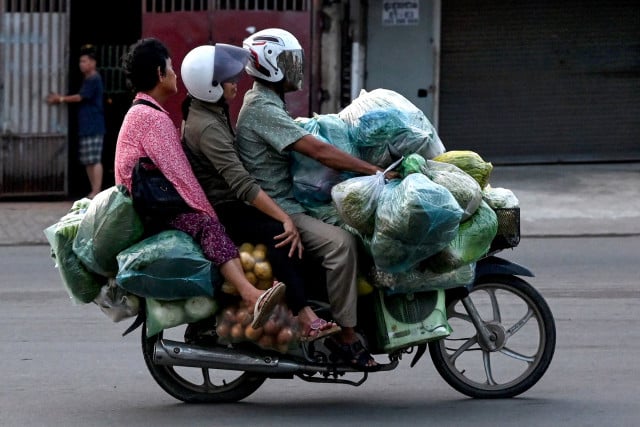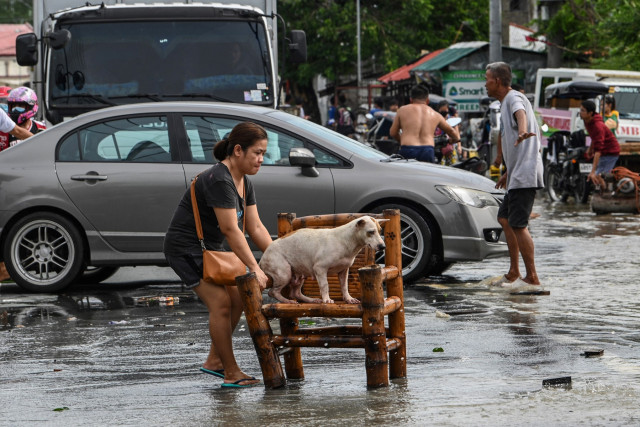Cambodia’s Rocky Road from Least Developed Status

- By Sao Phal Niseiy
- March 5, 2023 12:14 PM
DOHA – Cambodia is on track to graduating from the Least Developed Countries category next year, but getting of the list can result in losing international support, especially in terms of trade preferential treatment and loan concessions.
Cambodia is one of 46 countries in the category but it has fulfilled two of the three criteria required for graduation.
These include income, human assets and economic and environmental vulnerability. The threshold was reached for the first time in 2021 with the Gross National Income per capita standing at $1,377, above the $1,222 limit and the Human Assets Index standing at 74.3, over the required 66.
The country can begin the graduation process when it can keep maintaining the requirement in the next triennial review, which is set to be conducted by the Committee for Development Policy (CDP) in 2024.
According to the official process, a country that meets the criteria for two consecutive reviews can embark on a graduation preparation period of between four to six years or longer before it officially gets out of the LDC category. If things go well, this means Cambodia can officially graduate in 2028.
UNDP Resident Representative in Cambodia, Alissar Chaker noted that Cambodia is well on track to secure a recommendation for graduation next year after the second review as it can maintain high GDP growth and meet other required criteria given it has been affected by global challenges such as pandemic and war in Ukraine.
“Cambodia GDP would grow to 5.2% in 2023, supported by stimulus and mitigation measures implemented by the government, including social protection schemes such as the COVID-19 cash transfer and the newly announced cash transfer for population at risk and households affected by floods,” Chaker said.
“With this tendency, pre-pandemic growth levels could be reached in 2024 or 2025.”
This meant that Cambodia’s GDP per capita would be well above the income threshold for graduation.
The country had continued to perform better in boosting the human assets index and working to reduce the economic vulnerability index.
“While Cambodia will have to keep paying attention to all different aspects considered in the assessment, there are no signs of going off-track and is likely to get the recommendation for graduation in the 2024 review,” she said.
Cambodia to lose trade preferential treatment
Graduation from the LDC status can bring about costs and benefits as the least developed countries generally benefit from dedicated international support measures in the areas of trade, official development assistance and other. Therefore, after graduation they no longer enjoy the same benefits.
Conor O'Loughlin, spokesperson for the Office of the High Representative for Least Developed Countries, Landlocked Developing Countries and Small Island Developing States, agreed that graduation was scary.
“First, we have to accept that graduation is positive,” O'Loughlin told LDC journalists.
“It can be scary, but it is a pre-condition for integration of the national economy into the global marketplace.
While the support measures were helpful, their removal was gradual.
In terms of ensuring sustainable graduation, he said a key part of the High Representative’s job was working to support the graduation of LDCs when they feel ready.
“It is self-selecting process, but sustainable graduation is what we work on all the time. No one country is pushed for graduation before they feel like they are ready,” he said.
However, Cambodia, which relies heavily on textile industry and clothing sector, is expected to see a greater impact as it borrows money at a higher interest rate.
According to the World Trade Organization’s 2019 report, Cambodia’s textile and clothing exports account for up to 47% of its total exports, equivalent to $8.5 billion. Its export markets include the European Union, the United States, Japan, the United Kingdom and Canada.
In early February, the Ministry of Economy and Finance called on stakeholders to scrutinize the impacts of leaving the LDC category especially in terms of trade tariff preference, international aid and assess to global market.
In late February, Prime Minister Hun Sen also raised concern that the upcoming graduation will see the country having to pay commercial rates for loans.
“If we are poor, we get concessional rates,” he said.
However, the government had asked development partners, including multilateral financial institutions such as the World Bank, to keep providing low interest loans after the country graduates.
Cambodia has often been disparaged for having higher public debt, but the government denied this, saying the country is one of the ones with lower public debt. As of 2022, its total public debt stood at $9.9 billion — 40 percent of which was owed to China, according to a briefing supplied with the Law on Financial Management for 2023.
During the plenary session at the fifth United Nations Conference on Least Developed Countries (LDC5) in Doha on March 5, United Nations Secretary General Antonia Guterres also shared his concern with least developed countries over the current financing system and the lending practice implemented by the wealthy countries and financial institutions.
“A deeply biased global financial system is handing Least Developed Countries the rawest of deals,” Guterres said, adding they have to encounter interest rates up to eight times higher than developed countries.
The situation was getting worse with 25 developing economies spending over 20 per cent of government revenues on servicing debt, not on building schools, feeding people or expanding opportunities for women and girls.
“Some have seen debt-service payments skyrocket by 35 per cent.”
“Reform global financial system”
He called for more work to support least developed countries, especially to reform the global financial system through a new Bretton Woods moment.
“International financial institutions must develop creative ways to extend financing where the needs are greatest,” Guterres said, lambasting that global financial system was designed to largely benefit the wealthy countries.
“This includes expanding contingency financing and integrating disaster and pandemic clauses into debt instruments, and it is also time to accelerate the re-allocation of special drawing rights from the richest countries to those who need help the most.”
In the meantime, he called for multilateral development banks to transform their business model to leverage their fund to greater flows of private finance at reasonable cost into developing countries, particularly the least developed countries.
According to him, there should be new common-sense ways to measure countries’ economies “such as developing lending criteria that go beyond Gross Domestic Product to provide a true view of the value of natural capital such as the preservation of forests, watersheds, and marine resources.”
“Today when we destroy forests, overfish, or burn fossil fuels, that is recorded as a boost to Gross Domestic Product. And large parts of the care economy are not even counted,” he said.















